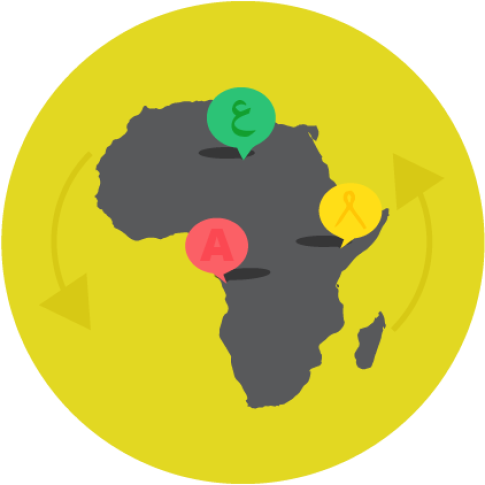
As access to the internet increases across the African continent, so does its potential to improve people’s lives, enable human rights, and strengthen democracy and transparent and accountable governance. For this potential to be achieved, the exercise of human rights on and through the internet needs to be respected, promoted and protected.
Unfortunately, there is an increasing trend in the region to regulate the internet in ways that pose threats to freedom of expression, assembly and association. States often resort to network disruptions in response to or in anticipation of civil and political unrest (e.g. during elections). Internet regulation and policy-making processes typically lack mechanisms for meaningful inclusive multistakeholder participation. Civil society and human rights defenders are frequently excluded from policy debates and discussions.
The African Declaration on Internet Rights and Freedoms, launched in 2014 as a response to the clear need for the articulation of a rights-based approach to internet policy in the region, is a pan-African initiative to promote human rights online in Africa. The text of the Declaration is based on existing human rights principles, and a coalition of 23 organisations and numerous individuals (the Coalition) are using it to promote and apply human rights standards and principles of openness in internet policy in their national contexts.
Since its inception, the African Declaration on Internet Rights and Freedoms has provided a valuable framework for the Coalition to claim human rights online in Africa. It has been leveraged among state and non-state actors for the promotion and protection of human rights online, resulting in some cases in the adoption of language and principles of the Declaration in national policy statements, legislation, resolutions and reports of national, regional, sub-regional and global human rights mechanisms.
However, in order to more effectively address threats and advance human rights online in the region, there is a need to build a strong and sustainable African Declaration Coalition and Secretariat; to strengthen the participation and influence of civil society in internet-related policy making, governance dialogues and decision-making processes; and to strategically intervene in policy spaces and respond to internet-related human rights violations in Africa.
A gap that has already been identified by Coalition members is the need for easier access to existing resources and materials which can strategically communicate the relevance and utility of the African Declaration in influencing internet regulation and policy-making processes. As the Coalition relies significantly on the learnings of its members and partners in working towards achieving its aims and objectives, there is a need for a structured learning, monitoring and evaluation framework to strengthen and leverage the strategic benefit from these learnings for the Coalition.
Internet governance, human rights, and internet policy debates, dialogues and decision-making forums in many African countries are not sufficiently inclusive of civil society perspectives and voices. Likewise, civil society is often absent or disempowered at relevant regional and global forums that impact on the exercise of human rights online in Africa. Support and access to resources are needed to support strategic and effective interventions by civil society in internet regulation and policy-making processes.
What we want to achieve with this initiative
The overall goal of this project is that national and regional internet-related policy frameworks across Sub-Saharan Africa promote and respect human rights, particularly freedom of expression, association and assembly, through the active involvement of civil society, led by the African Declaration on Internet Rights and Freedoms Coalition, in monitoring and responding to violations, network building, and policy development.
With support from the Bureau of Democracy, Human Rights, and Labor (DRL) of the US Department of State, the project will build the capacity of the African Declaration on Internet Rights and Freedoms' Secretariat and Coalition and of civil society organisations who use it in policy development and in responding to internet-related human rights violations. This, together with providing resources to support the efforts of these organisations, will contribute to more rights-respecting national and regional internet-related policy frameworks across Africa.
Objectives
This initiative aims to achieve the following outcomes:
- The African Declaration Secretariat and Coalition have the capacity to effectively promote and coordinate uptake and use of the Declaration across Sub-Saharan Africa.
- Collaborating with civil society actors, human rights defenders and media groups, the African Declaration Secretariat and Coalition participate in and influence regional and global internet-related policy processes to help ensure that they respect human rights online.
- The African Declaration Secretariat and Coalition members and partners have access to resources to enable them to respond to rights violations and implement actions towards ensuring that national internet regulation and policy-making frameworks better respect human rights in Africa.
These objectives will be achieved through activities implemented by the African Declaration Secretariat in collaboration with Coalition members and partners as well as a small grant programme to enable Coalition members to implement actions at national level.
Visit the website of the African Declaration on Internet Rights and Freedoms.
See previous work of APC around the African Declaration on Internet Rights and Freedoms.
Engage with the Declaration here.







